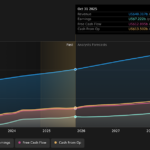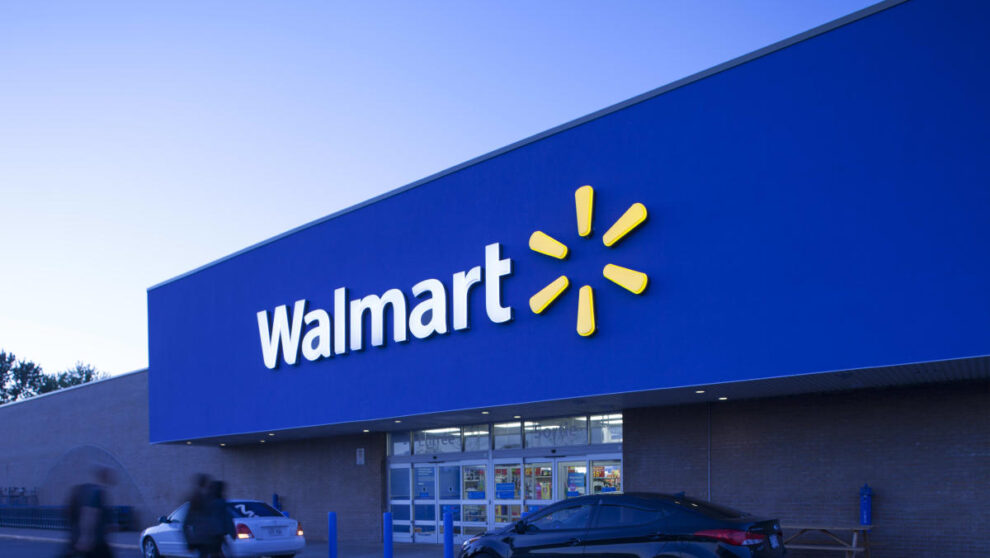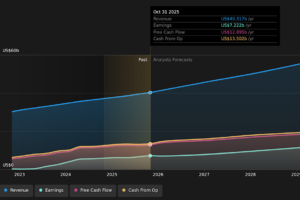The Fortune 500 is one of the oldest and most prestigious lists in the financial media world. First published in May 1955, the Fortune 500 ranks companies based on their annual revenue. The top ten companies on the inaugural list included industrial giants like General Motors (GM), U.S. Steel (X), Chrysler, and oil powerhouses such as Jersey Standard (now Exxon Mobil (XOM)), and Gulf Oil.
Fast forward to today, and the list has undergone a remarkable transformation, reflecting the rise of technology titans like Microsoft (MSFT), Nvidia (NVDA), and currently holding the top spot is discounted retailer Walmart (WMT). While the Fortune 500 showcases a company’s revenue size, which is crucial for investors, it also sheds light on the visionary leaders steering these corporate giants.
Yahoo Finance Executive Editor Brian Sozzi sits down with Fortune Editor-in-Chief Alyson Shontell to uncover the story behind the world’s biggest companies and their trailblazing leaders.
This post was written by Angel Smith
Video Transcript
Hey there, my invest, curious friends.
We’re uh welcome to opening bid.
I’m Brian Sazi Yahoo Finance’s executive editor.
Thank you for joining us either on youtube, Yahoo Finance, Spotify, iheartmedia, Pandora or Amazon music.
Lots of, lots of places.
If you’re loving opening bid, hit us with those likes and fire off your questions and hot takes to me on X at Brians Sozzi and at Yahoo Finance.
Very important stuff.
We’re here to help and listen.
Now let’s make some money and get a lot smarter joining us now, very special guest.
And I would say friend of the show, Fortune editor in chief Alison Chantelle Alison.
Good to see you.
Uh As always it is, it has been a while big, big moment for you.
The annual Fortune 500 list is, is out.
Take us through a little of the history of, of this list as someone that is in the trenches developing it for the, for the past few years, I I’m sure it’s something that has been handed down from generation to generation at fortune uh amongst the leaders such as yourself at the company.
But you know what, how do you go upon developing and, and, and what is the list uh look like this year?
Yeah, so the Fortune 500 turned 70.
Uh So it’s 1955 was the very first year.
It was a lot different back then.
It only covered industrials.
We were in the middle of a manufacturing boom in America and we wanted to celebrate that back in 1955.
So that’s really the companies that were reflected and focused on.
At that time, in 1995 the list changed to include service companies like AJ PM.
Um And so you’ll see they were on the list for the first time Walmart was on the list for the first time Microsoft at that time.
And now 100 and 70 companies have been on the list every year since.
Um But yes, this is passed on from generation to generation from Henry Lu, our founder on down for the fortune editors, including myself.
It’s a labor of love.
We spend months and months and months on it.
It’s based on last year’s financials.
Um But packaging it all up and pulling out all the trends, takes actually quite a bit of work and reformatting.
So really exciting.
That has to be wild to.
And I’m, I, I can’t wait to get on to who’s the list, who’s on the list this year.
But it has to be wild to look back at 70 years.
You’re essentially watching.
Are you going back in, in the history of, of corporate America.
Uh, what surprised you, you know, going back in history on how the lists have evolved.
Yeah, I mean, I think back in so some of the companies that have stayed on the list, there’s been 49 companies that have been on it for the entire 70 years and some might surprise you, but it’s going back to when we were making things like meat packing and steel manufacturing and still oil producing.
So you’ll see Hormel, the maker of spam all 70 years and those cans are still good, Alison, those cans of spam 70 years, they’re still going strong.
Spam.
You can’t kill spam.
It’s timeless, it’s timeless thing.
Um So really, I mean, just the saying power of some of these companies, actually, the average age of the Fortune 500 company is 88 years old, which is super impressive.
Most companies don’t make it beyond like a decade at most.
And these companies have something to their longevity.
And so we’re launching a future in a week that’s sticking into that with some of the leaders of those companies.
But really, um it’s just the try to true names the 49 companies that have been on it forever.
It’s, it’s really incredible.
Can you confirm that, that Tesla was on the list in 1955?
I just want to, you know, swab the deck.
I mean, because I think everywhere you go, but they were the fastest to ever hit the top 50.
They zoomed to the top and they cruised to another.
Now they’re top 40.
Um, after they were top 50 they’re just still cruising in our stock land.
Uh, Alison, that we can call that an electrified move higher.
I mean, just a really bad pond, but I had to, I had to get it out of the way.
So, um, take us through, you know, some of the biggest, who are the top five largest companies on the list this year.
So Walmart is unbeatable.
Uh It’s number one for the 12th year in a row, followed by Amazon which is number two.
Amazon saw a 12% revenue growth uh to over $560 billion last year.
Um So that’s those are the top one and two.
Then you see things like Sin Cora, a lot of health care companies CV S is in there at number six.
United Healthcare remains up there.
It’s a big year of healthcare.
Again, financial sector had a huge, great boom last year because of things like the high interest rates they really benefited.
So a lot of the fastest growing companies on the list were in that sector.
Um And then in general across the list, you see, uh the return of travel was a big trend.
The airlines generated much better profit than they did the year prior and the year of A I I mean, NVIDIA on fire Walmart, the most valuable company in the world.
Um, so they really benefited from that.
What, what could stop Walmart?
I, I go, I look, I mean, we’re always, it’s our job to be skeptical, uh, in these positions but, I mean, the prices are, are great.
II, I can’t see how this company doesn’t continue to dominate over the next decade.
How we’re not having this conversation 10 from 10 years from now, maybe in videos too.
And, but uh Walmart, it’s just gigantic and they’ve turned themselves into this ecommerce juggernaut.
Yes, they have totally made the turn to e-commerce brilliantly.
We actually examined a different ecommerce com, a different commerce company in the package this year, Costco, which is in the teens somewhere.
Um, and they really haven’t made that hard pivot into e-commerce yet either, but they’re still on fire.
So this is definitely a big retail uh season for sure with Amazon Walmart and Costco in the top.
What is number?
What does s Cora do?
So they sort of describe them with that name.
I could say it but I’ve never heard of it.
Yeah.
No, it’s a new name.
Um but it, they describe themselves sort of as like the Fedex of health delivery stuff.
So it’s like super, super sexy, uh highly valuable and nobody can quite describe what it does, you know that you’re not alone.
It is amazing.
You know, you see Exxon what at number at number seven, you know, even despite the electric, electric vehicle movement in this country, I mean, Exxon is still at number 71 of the largest companies in the world.
I think it really underscores just a continued, under, just a continued importance of oil and gas in this country and it’s likely to stay that for some time.
Yeah, I mean, you asked what could topple Walmart?
I mean, when we look at the Global 500 the only thing coming for it is Saudi Aramco.
Um So really, I mean, no one still came.
Uh even though they are very much trying to pivot into things beyond oil.
I mean that yes, you see it in Exxon, which is another company that’s been on the list for all 70 years is Exxon and then there was Mobile.
Um but Exxon won, you know what is also amazing too?
Uh The market cap, I think, I hope I have this right, the market cap of the fortune 500 this year or when you did this list up 30% to 43 trillion.
But the operating profits for the fortune 500 only up 10%.
And I think it’s so telling that even though profits aren’t, you know, growing 2030 40% investors remain so engaged in, in the market, they’re willing to pay up to own some of these largest companies in the world.
Yeah, I totally agree.
And profits rose faster than revenue this year.
It was up 10% versus 4%.
Um, a lot of reasons for that.
But I think you could also say this is the year of efficiency.
I mean, Mark Zuckerberg said it on his earnings, he delivered on feed in the numbers.
Um, the rising wages for something that they had inflicted on companies the year prior that really eased up last year.
Um, so you’re seeing that reflected in all the numbers and the employee, what, 31 million people worldwide?
I did you guys explore the hiring trends in these companies at all?
We didn’t really explore the hiring trends.
We do overall company size and the numbers.
But yeah, I mean, that, that is just a remarkable number.
And then of course, in the tops of the list, Berkshire Hathaway, Warren Buffett, we uh you know, before, uh in a prior episode of opening video, we talked to uh Howard G Buffett, Warren’s Warren son and that’s just a terrible name drop, but it is what it is, you know, we had him on.
It was interesting to hear things that he learned from your father, from his dad and I didn’t get the sense like Warren Buffett’s not going anywhere, Alison, like everybody’s looking for him to retire.
He’s not going anywhere as long as he can.
I think physically do this job.
He’s the man at Berkshire.
Oh, completely agree.
Completely agree.
It’s um it is amazing to see what he has uh continued to uh continue to build.
Let’s talk a bit, a little bit about, you know, some of the companies, the survivors who was on the list in 1955 that, uh, they’ve been able to stay on this list for 70 years.
Yeah.
So Hormel Pfizer Exxon, um, we’re actually exploring a feature on kind of the longevity of some of these companies.
But really, I mean, I think first off they’re on the list because they were making stuff.
But like we have made this joke software might be eating the world, but engineers still eat meat to eat.
So you’ll see a lot of these are like Kellogg’s and a lot of like the food companies are still persisting.
It’s the, but it’s a really big brands and these are companies that have also been able to like innovate and change over time.
I mean, you look at Pfizer and its evolution and everything it’s doing with MNR A um are, yeah, and everything that it’s doing there.
So it’s really just made the transition extremely well despite whatever is thrown at it.
Um Microsoft has only been on since 95 when we added services.
But the transformation of that company under Sasha Nadella is really just like something we’ve never seen before.
He’s only been in the seat for 10 years and yet the value of the company is up 10 years and he told our reporter what keeps him up at night is missing.
The next thing like no company deserves to exist if they miss the paradigm shift.
And so he’s really focus on that with A I and you really, really see how he’s transformed the company to keep it with staying power.
Do you think that really keeps Satya up at night?
Do you think maybe he just, he just had a bad meal and he’s just, he just stays away.
Like I ask that question to him all the time.
Um I’m always amazed how people, how people respond, but I do want to get a little of Microsoft and I also saw so Sati is actually on the cover, correct?
Um Yeah, I want to go into a little bit of Microsoft but also uh the cult of Costco.
I am a uh I think Costco is just an amazing, an amazing business, you know, looking forward to, you know, actually, I’m sorry, looking back actually, it’s sad that General Electric’s not really, I mean, they won’t run the iconic industrial companies.
They were a founding member on this list, right?
Of course.
Now they’ve been split up into various pieces, right?
Yeah, absolutely.
They were huge in the beginning.
Um And they’ve split up in many, many different ways and sometimes that can be an asset and but yes, absolutely not what they, yeah, asset for like the the shareholders um in some of these companies and then 14 new companies, I mean, doordash, I mean, who does an order via doordash now like that is just an amazing business monster beverage.
I’m an daily estor of their product.
So I can’t say I’m surprised you are you responsible for getting them on the porch?
500?
Like they, well, look I can go all I can go, I can talk to you about monster beverage for a long period of time.
Um but they have expanded beyond like that core weird tasting energy drink.
I mean, they’re selling coffee now.
I mean, the rise in that category has been um bananas and Super Micro uh just from like a Yahoo finance perspective, Alison like every day, not every day.
I mean, I can’t tell you like during the week how many times Super Micro pops on we have like a Yahoo finance trending ticker page.
How much interest there is in Super Micro I think because it was just so low price.
But I mean just to make it on the list list though, I think it sends another message that this is not just some cheaply priced stock, this is a company earning real real revenue.
What do you, what do you know about Super Micro?
Yeah, we actually we have a feature coming out uh in two weeks on it.
So I’ll send you to that link then but yes, no, it’s totally exploded on the scene.
Um I think it’s another beneficiary of the A I boom.
Uh but the fact that there’s revenue attached to it is really uh a nice kind of surprise in the A I sector where you see actually revenue for a lot of these companies is ticking up, but there’s also just a lot of tremendous hype when you go to the start up and private sector.
Um so to see companies that are really carving the way and pathing forward is great.
That’s just a cool name.
Super Micro.
How do you be a company?
It’s called Super Micro.
I, I’d rather, I’d sooner rather do that than uh than uh can’t play out.
Just the headlines would be too bad.
All right.
Uh Real quick.
Hold on, Alison.
It’s uh it’s time for a quick break but don’t go anywhere.
We’re still rocking our 24 minute conversation as usual.
So Ali and of course, we’re talking about the latest uh fortune 501 of the most closely followed lists uh in our financial media space, if not the world and just really uh incredibly respected.
But on this cover of this edition, there’s two stories I wanna get into to the extent we could, we could share them without giving it all away because we still want people to buy fortune magazines and, and read them on the site inside the cult of Costco.
Uh This is a company that just makes a lot of money.
I mean, the amount of money they pull in for membership fee income and it’s so strange to see Costco still doing so well at a time where Walmart is killing it, which is something you could see because their number one company on your list.
Yeah, Costco is incredible and completely masterminded.
I mean, really the psychology that they use to turn you from a casual shopper who’s like, what is this Costco thing into rabid enthusiast that marches to their store and spends hundreds more than you ever anticipated filling your bathroom things.
You don’t even know what can fit in your car.
Um It’s really simple and it’s all incredibly awful.
I mean, really they um their Kirkland brand, if it was a stand alone company would be on the list.
I mean, it, it’s massive in comparison.
They’re expert at picking just like one or two items for everything so that you don’t have kind of like analysis paralysis as you’re perusing the shop, like which of these 20 ketchup should I buy?
They’re like, no, we’ve got like two for you make it eat.
They also have no fine.
Yeah, they’re brilliant.
They have no signs on anything in the aisle so that you have to go around and look at every single thing.
Um They’re just very thoughtful about it and it’s an executive team that’s like, you know, really into the numbers and really into the data and really into the enthusiasm of building this brand.
Um down to how much inventory they will or won’t buy, they buy things early.
You’ll see flip flops there way earlier than you will in any other store.
Um, and they in January.
Exactly.
Exactly.
Um, so their inventory purchasing is an interesting strength as well.
It’s just a really brilliant marketing company.
How can you not dig Alice in a company selling in their stores?
Gold bars, which is now captured.
I think fortune has read about that, written about that.
Right.
So, they do a couple of things.
They do these treasure hunts where they will purposely buy like a couple bottles, not like, you know, relatively a couple bottles of $3000 red wine at a serious discount in their stores.
And they’ll like stick it on a shelf.
And then people will say like, oh my God, I found this wine at Costco and they’ll write it up on their Facebook message board to their community.
Everyone will be like, I gotta go to Costco and try and find it.
So they’re super smart about the treasure hunting.
It’s a real tactic that they use.
Um And also things like their hot dog and their hot dog and drink price will never, they say go above 150 they have had CEO arguments where they’re like, oh, if you raise that, you’re dead to me, you can never raise that hot dog price, the brand of Costco.
Um And as you know, and also the interesting thing about Costco is there.
So you can tell I’m a fan as well.
I love to keep going an affluent audience.
They have a much more affluent shopper than I think you realize it’s a higher hh I than the target in the Walmart of the world because they have that membership fee.
But everybody still wants a deal and a discount and they just have this great, hold on you where like, yes, you’re paying this fee that maybe you sometimes forget about, but then you can get the dollar 50 hot dog and that’s good.
I, I will feed into this, uh, literally.
So I recently went to Costco, I found 4 of Tomahawk steak for $41.
Now, if I, if I go to Amazon owned whole food, whole Foods, I’m paying about $45 for 2.
And the thing is to your point on the treasure hunt in Costco, I didn’t expect to walk in there and find Tomahawk steak.
I thought I was gonna get, I don’t know, maybe some frozen fish, but I had to buy it because it was from Costco.
And now I tell everybody that it’s in there and just feeds on itself totally.
It’s a word of mouth.
Bonanza and message word Bonanza.
And then after I eat this Tomahawk steak, I could probably go on to costco.com because they sell caskets on there.
Did you know they sell caskets?
Like it’s the weird, like, what is this company doing?
I It’s, they got you literally from birth to death it’s not, it’s not even normal, the whole, the whole pipeline.
Yeah.
Keep eating our hot dogs and buy a casket from us.
That’s where, that’s where it’s all going.
And then so also besides Costco, I can talk about Costco all day.
Um, on the cover, Microsoft is back on top.
Satya Nadella, longtime CEO uh Microsoft uh his photos on there 10 years as CEO and it’s strange because I’m now at the point and I don’t know if you feel like this way.
Um Alison, I it’s hard for me to remember the Steve Bomber days.
Uh It’s hard for me even more so to remember the Bill Gates.
Bill Gates Day.
I think Microsoft, I think Satya Nadella and here’s a company that got a slow moving asset under Steve Ballmer.
Uh He had to come in there and just improve the culture, but look what he’s done since acquisitions.
Uh Now pivoting to A I, he’s got copilot deals with open A I.
This is a completely transformed company under Satya.
Yeah, I never thought I would say that Microsoft could be sexy but it almost under Satya, I mean, under Ballmer, it was like deeply, he was entertaining the company itself, deeply boring and very know it all.
One of the big things Sata did for culture, which was, you know, needed a massive transformation was to change it from a know it all like we know everything we’re gonna force our vision on the world to a learn it all culture and even Sata and our opening anecdote, you can see him doing this with a customer where he’s just like asking questions and learning, learning, learning about why they’re actually in the opening anecdote using Facebook’s LLM instead of his for a certain component.
Um So I think that was a big cultural shift, but he’s just made smart move after smart move with his acquisitions, the github.
Um And the way he leads the engineering team is with that idea of like you are not the customer, you’re serving the customer.
So find out what they want and build for them and don’t force our products on them, let them shape what we’re doing.
Um So he’s really just transformed everything from how the company is thinking the products that they’re producing.
I wonder if 10 years from now we’re, we’re still here talking about Satya cl like what I haven’t heard Alison is who, who succeeds him.
I mean, these jobs aren’t forever, they do, they do wear on you.
And I don’t, it’s un it’s unclear to me.
Um But now he’s become so intertwined in the Microsoft story.
I, I wonder once he does retire, whatever that might look like.
I mean, he just stepped down from the, the Starbucks board.
Is it now he’s maybe starting to think about retirement unclear, but he’s become so, I guess no one’s irreplaceable, but he’s become so integral to what Microsoft does and not only today, uh, he’s really laying the groundwork for the next decade of growth of the company.
Yeah, I agree.
I think the moves he’s making a, in A, I, you see, reflected in the stock, I mean, the shares are up tremendously.
It’s the most valuable company in the world and it’s not just that he made this big bet on the start up, open A I that who’s funding, he’s now diversified those bets, especially since the ousting weekend ouster of Sam Altman, he’s really diversified the A I plays there.
Um and is really setting Microsoft Microsoft up in many ways to be at the forefront of what could be the most transformational decade we’ve ever seen among companies and among the order of big tech.
Um as far as who succeeds him, I kind of doubt that’s, I doubt that’s on his mind and he’s still very young.
He seems like he’s got a lot of room to run and he, like you said, he’s putting the right pieces in place for the next decade.
Uh I think it would be a devastating blow if that was even a whiff of a question to shareholders at this point.
He is integral to what the company has become.
Do you think we’re sitting here, you know, a decade from now and in the top 10 is really all A I companies.
Uh It’s, you know, we do our best here to and I I know you.
I’m sure your team do it to debunk this A I moment.
I’m calling A I revolution.
I think that’s absurd.
I just read just absurd terminology but A I is becoming so prominent in our lives.
Does it just fuel the valuation of Walmart or is Walmart supplanted by some A I company we don’t even know about.
I think it’s a great question.
I mean, I think that with A I, we’ll see valuations of companies at a pace that we’ve never seen before.
We can already see the signs of it.
Um But I think even an open A I easily could be a trillion dollar company very, very quickly um at a record pace.
So will they be in the top 510?
I don’t know, it depends on how fast.
Uh It’s, I think possible that if you break through um A I will be just in everything I think saying A I in a few years will just be like saying the internet, we’ve even talked about that as we have like hiring A I reporters.
We like, they’re just gonna be tech reporters at the end of the day.
You’re not hiring everything.
You’re hold on.
Wait A I reporters to report an A I or are we, are you, is fortune there?
Talk to us a little about fortune.
I mean, you’ve been there for, for seven year, several years, completely transformed the platform.
You know, how has Fortune changed the past few years, you know, amidst all this technology, we’ve changed a lot.
Um So I came in, in 2021 and the company was down to six issues per year of the print magazine.
But the print magazine is still really what people know us for and we have still over 500,000 subscribers there.
Um And the website still felt like a magazine, I think like that.
If you went to the sections on the home page, it was like newsletters and podcasts and the ma magazine as opposed to tech leadership finance markets, you know, like we really needed to kind of like get with the digital program really up our cadence in terms of like expecting to be there for shareholders and for CEO S as readers whenever they need us, not just on a magazine schedule.
So I really kind of reorganize the whole newsroom around a couple of key beds we really care about.
And we have really leaned into the idea that the way that readers consume information now, first off, they need to be able to trust where the information is coming from.
So our brand is more important than ever and the quality of our reporting is more important than ever.
But we also need to be wherever readers are in whatever way they want to consume us.
I mean, if you look at the younger generations, they’re getting all their information on tiktok.
So we launched a tiktok channel two years ago, which is kind of like your grandma launching Tik Tok.
But at the same time, if that’s where the future of consumers are, and it’s where they need trusted information, we need to serve them there.
So we’ve really been showing up in more and more places you’ll see us on Yahoo now and you didn’t even see us there a few years ago.
So we’re talking about all we can to be in the service of the reader because it’s not going to be that they’re always just coming to our website for us.
Any sub 20 year old listening to opening bid or watching Alison go out and buy a Fortune magazine, the feel of it, the look of it.
It is Alison.
I’m not just saying this because you’re, you’re on here.
That’s how I learned partly or how I learned about, you know, financial media and journalism.
It was those profiles of, of leaders that I know you still do.
It was always felt like you were brought into a different, different world.
So it’s good to see that magazine still.
I mean, you’re still making the magazine, right?
I mean, it’s still going to be a thing as you see it.
Yeah.
And we will not get rid of it.
I mean, as long as certainly as long as I’m there, we will not.
And actually it’s, it’s profitable for us.
It’s a good chunk of our revenue still and not just because it’s like brimming with, without dollars, it’s really not.
It’s, but we do make it profitably and the paper quality is really good.
If you hold some.
Of course, it’s good.
Like, haven’t, we haven’t skipped on the quality of it.
It really is.
Just, and this crazy A I and social media world where you don’t know where your information is coming from.
It is.
Yes.
I’m in love with print because I work for a magazine company at its core.
But like it is the best curation of high quality journalism and business you can find.
I mean, the deep dives we do the caliber of the editors we have.
Um it used to only hi hire Ivy League people.
Now they let people like me in there running the show.
Really, the quality and depth of knowledge is really, it’s unmatched fortune editor in chief Alison Chantelle.
Always great to get some time with you.
Congrats on the New Fortune 500 rankings and thank you for uh having all your content and y’all finance Alison.
Thank you so much.
Thank you for having me.
All right.
That is it for the latest edition of Yahoo Finance’s opening bid.














